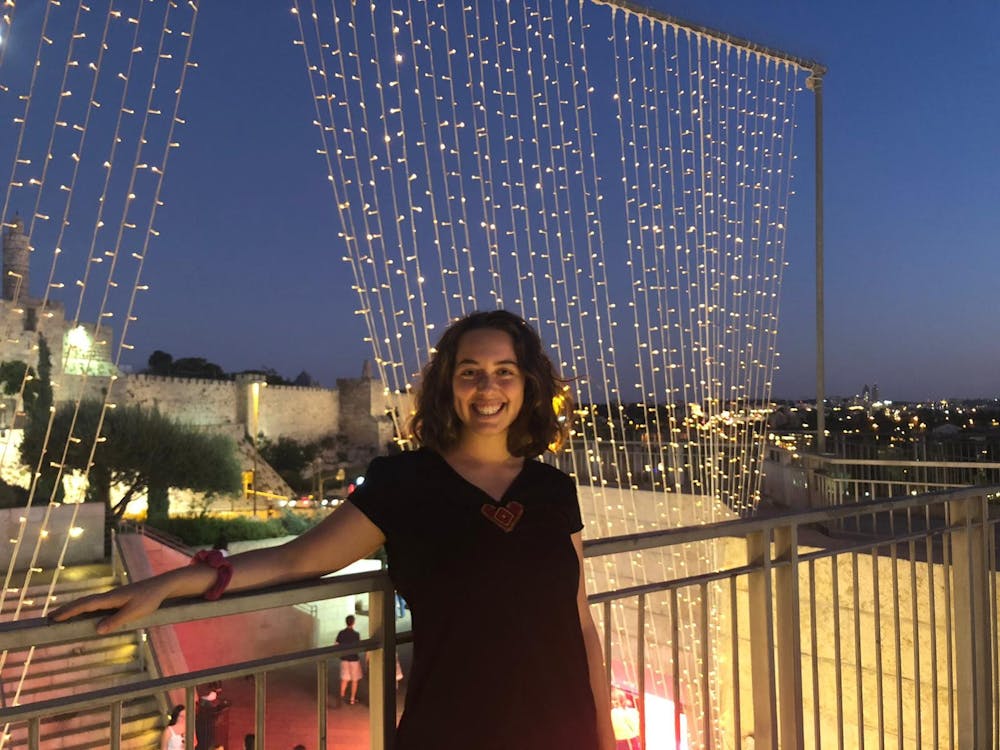On April 15, Malka Himelhoch ’21 was awarded the Truman Scholarship, making her one of 62 college students nationwide to join the 2020 cohort of the Harry S. Truman Scholarship Foundation’s prestigious annual fellowship.
According to a press release penned by Madeleine K. Albright, President of the Truman Foundation and former Secretary of State, the Truman Scholarship “is the premier graduate scholarship for aspiring public service leaders in the United States.”
The scholarship was founded by Congress in 1975 as a “living memorial” to President Truman, and the foundation’s mission rests on the notion that “a better future relies on attracting to public service the commitment and sound judgment of bright, outstanding Americans.”
This year’s cohort includes mostly college juniors, who were selected from 773 candidates representing 316 colleges and universities. The selection process included 16 independent selection panels and was based on “the finalists’ academic success and leadership accomplishment, as well as their likelihood of becoming public service leaders.”
The scholarship includes $30,000 for graduate study, priority admission and supplemental financial aid at certain premier graduate institutions, career and graduate school counseling, special internship opportunities within the federal government, and leadership training.
Hailing from Lexington, Ky., Himelhoch is a religion concentrator pursuing a certificate in values and public life. Having grown up in an Orthodox Jewish community, the press release noted, she has “long grappled with the tension between her religious identity and her feminist values.” This struggle has informed her passion for the rights of survivors of interpersonal violence, particularly within religious communities.
“My feeling is that everybody deserves justice,” she told The Daily Princetonian, “no matter whether they’re a woman like me, who’s Orthodox, and is part of a patriarchal religious system, or if they’re a secular person who maybe doesn’t feel obligated to the same kinds of things that I do. Everybody deserves justice, especially in terms of interpersonal violence.”
To that end, Himelhoch wants to help people who are not interested in giving up their religious commitments to get the justice they deserve.

“I’m interested in representing survivors of interpersonal violence who are religious and face all sorts of systemic injustices within their communities and are asked to give up those religious commitments to try to appeal to the secular justice system for help,” she explained.
With the help of the Truman scholarship, Himelhoch hopes to pursue a law degree, looking specifically for a program focused on women’s rights, and then likely work for a non-governmental organization (NGO) that represents and assists survivors.
“Hopefully one day I’ll be able to open an organization that’s specifically run by religious women, for religious women,” she said. “In my dream world, it wouldn’t just be Jewish women — it would also be women of other religious commitments. That’s the hope.”
For Himelhoch, the scholarship is more than just a funding opportunity.

“What’s amazing about the Truman [Scholarship] is that not only does it give you money to help go to graduate school,” she explained, “but it connects you with this amazing network of alumni and people in my own cohort who are interested in changing America, and — this sounds so cliché — but making the world a better place.”
According to Himelhoch, the Truman scholar representatives from Kentucky from the past two years have already reached out to her, looking to congratulate her and discuss the future.
“Being connected to other people who are interested in and passionate about pursuing social justice in many different fields is inspiring,” she added.
At the University, Himelhoch is the co-president of SpeakOut!, an organization that promotes safe, consensual, and respectful sexual practices on campus and beyond. She founded a campus support group for survivors of interpersonal violence; serves as a SHARE peer, acting as a resource for students facing sexual harassment and assault; and was a leader in the Princeton IX Now protest movement last spring. She has also served as Education Chair of Yavneh, the Orthodox Jewish minyan in the Center for Jewish Life.
Off campus, she continues her ongoing work with Mavoi Satum, a religious Israeli nonprofit that provides legal and psychological support to women whose husbands refuse to grant them divorces.
“As somebody who’s been in religious communities with Malka, I feel inspired by her leadership in advocating for women in those spaces,” said Yael Marans ’21, a close friend of Himelhoch’s. “Also having been a SHARE peer with her and witnessed her amazing work in the protests last spring … I really admire how much effort and passion she’s willing to put in to accomplish her goals.”
Marans is a news staff writer for the ‘Prince’.
One University class that profoundly shaped the way Himelhoch thinks about consent and what philosophical and moral obligations in relationships can look like was philosophy professor Elizabeth Harman’s “The Ethics of Love of Sex” course last fall.
“It was a joy to have Malka in my fall seminar,” wrote Harman in an email to the ‘Prince.’ “She showed real sensitivity to the complex moral issues that arise concerning sexual relationships — from the serious issue of sexual assault to other questions concerning honesty and communication in sexual relationships.”
Himelhoch also acknowledged how grateful she is for the University’s support and resources in the fellowship application process.
“In particular, I wanted to thank Dr. Steve Gump, who was the fellowship advisor. He says it’s just his job, but he’s incredible. I can’t thank him enough for all the time and energy he put into helping me,” she said.








